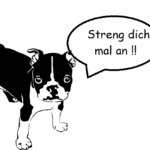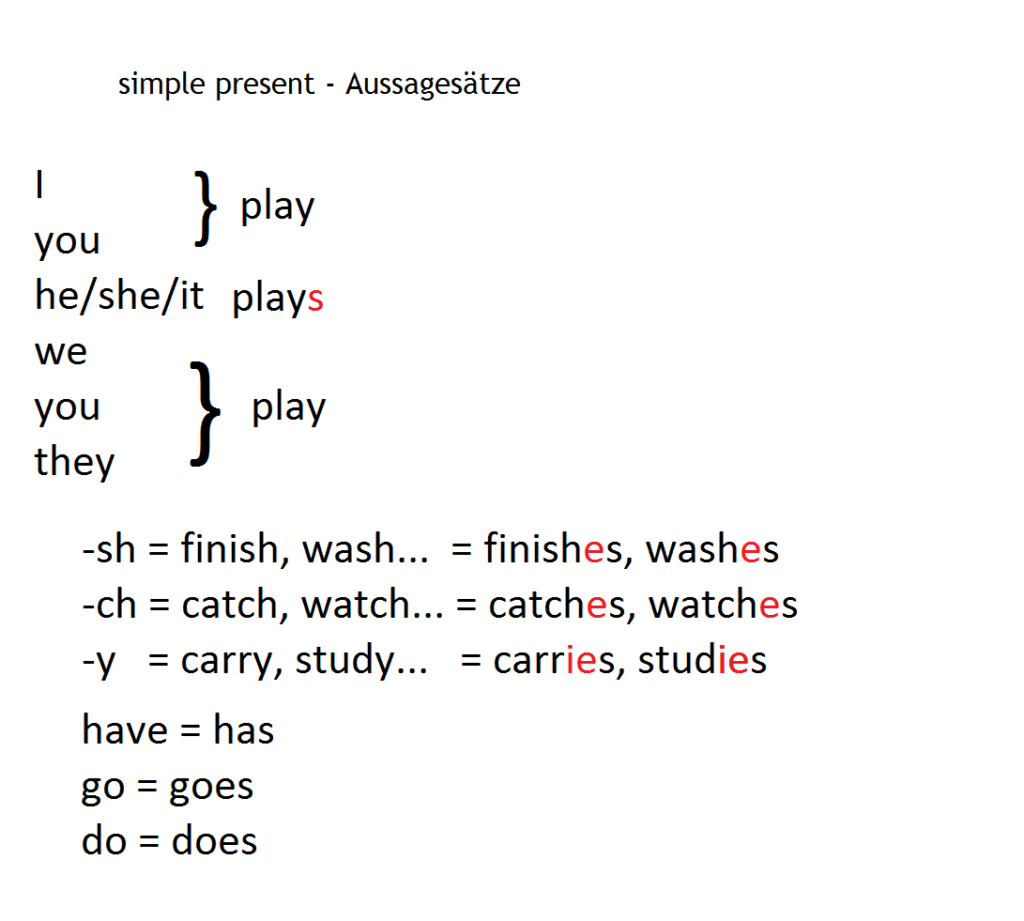simple present affirmative sentences – exercises and solutions
Quiz-summary
- 1
- 2
- 3
- 4
- 5
Information
Wähle die richtige Option (multiple choice)
Results
Categories
- Not categorized 0%
- 1
- 2
- 3
- 4
- 5
- Answered
- Review
-
Question 1 of 5 1.
Question Choose the right option
Correct
gut gemacht.
Incorrect
die richtige Antwort ist: John hates work.
Hint
I/you/we/they drink he/she/it drinks I/you//we/they catch wash he/she/it catches washes I/we/you/they fly try hurry study he/she/it flies tries hurries studies I/you/we/they an offer go do he/she/it has goes does -
Question 2 of 5 2.
Question the show must go on:
Correct
gut gemacht
Incorrect
fast, die richtige Antwort ist: I love sports.
Hint
I/you/we/they drink he/she/it drinks I/you//we/they catch wash he/she/it catches washes I/we/you/they fly try hurry study he/she/it flies tries hurries studies I/you/we/they an offer go do he/she/it has goes does -
Question 3 of 5 3.
Question Which sentence is correct?
Correct
gut gemacht. weiter so.
Incorrect
fast. die richtige Antwort ist: you always go out in the evening
Hint
I/you/we/they drink he/she/it drinks I/you//we/they catch wash he/she/it catches washes I/we/you/they fly try hurry study he/she/it flies tries hurries studies I/you/we/they an offer go do he/she/it has goes does -
Question 4 of 5 4.
Question Fill in the verb in its correct form:
- I (play) soccer every Tuesday. (play) He (drinks) beer on Friday. (drink) questions (live) in France. (live) They (work) hard at the weekend. (work) She (likes) rugby. (like) You (hate) cheese cake. (hate)
Hint
I/you/we/they drink he/she/it drinks I/you//we/they catch wash he/she/it catches washes I/we/you/they fly try hurry study he/she/it flies tries hurries studies I/you/we/they an offer go do he/she/it has goes does -
Question 5 of 5 5.
Question Fill in correct form of the verb in the third person singular:
Johnny_____ football.(play) – Johnny plays football.
- A good man always (pays) his debt. (pay) He (studies) the Wall Street News every day.(study) She (reads) The Economist. (read) Mr. Smith (goes) to work by bus. (go) Helen (does) her homework on her way home from school.(do) She (is) a nice person (be) He (has) a lot of ambition. (have)
Hint
I/you/we/they drink he/she/it drinks I/you//we/they catch wash he/she/it catches washes I/we/you/they fly try hurry study he/she/it flies tries hurries studies I/you/we/they an offer go do he/she/it has goes does
The simple present is used in English when you do something on a regular basis.
Typical signal words to indicate the use of the simple present are: always, sometimes, never, usually, often… always, sometimes, never, usually, often….
It is very easy to conjugate a verb in the simple present tense. All you have to do is an "s" to the infinitive of the verb in the third person singular.
Of course there
someuniqueexceptions:
As you know, without exceptions, English just wouldn't be English.




